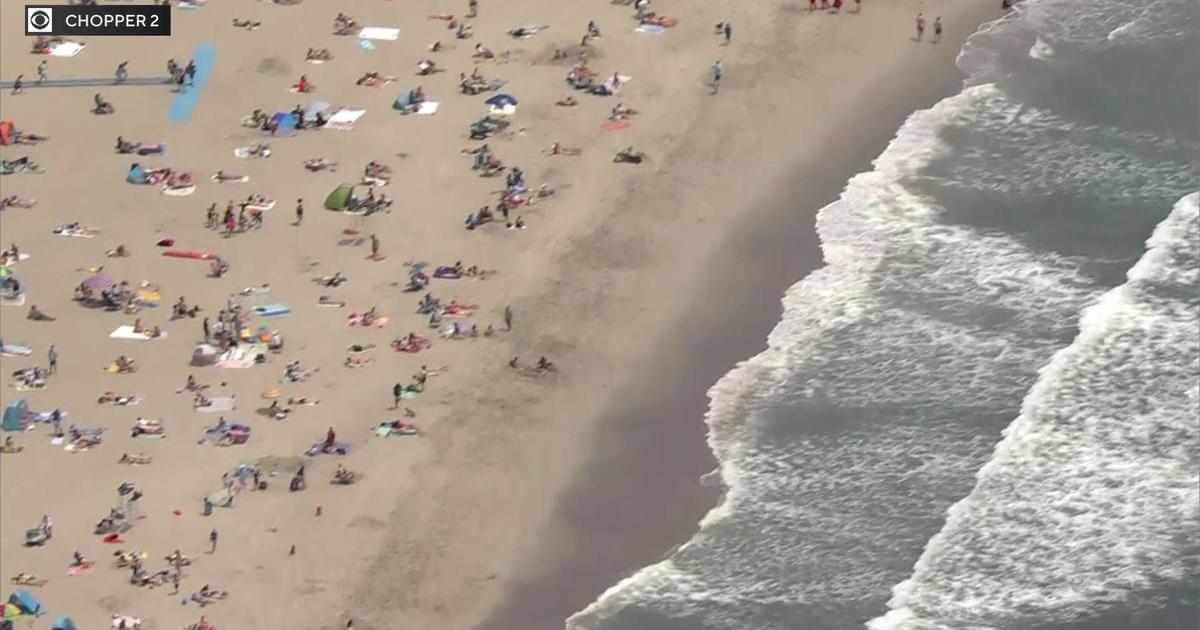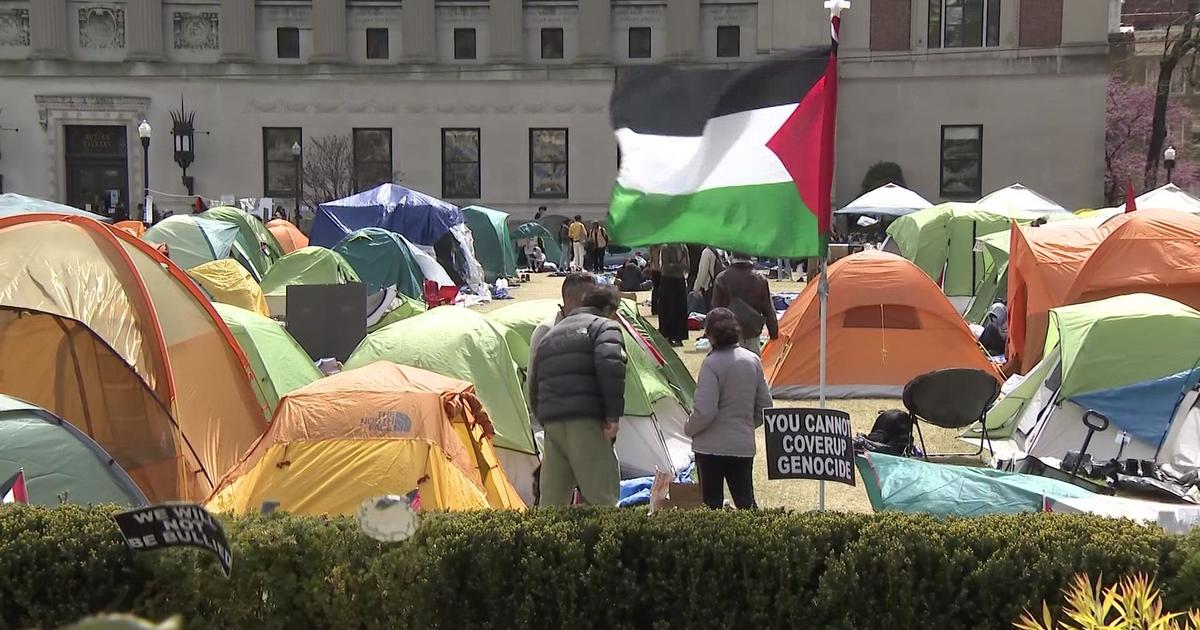Are you prepared for hurricane season? CBS2 has what you need to know
NEW YORK -- Hurricane season is fast approaching, with the National Oceanic and Atmospheric Administration set to release its forecast on Thursday.
CBS2 meteorologist Vanessa Murdock explains what goes into hurricane forecasting and what you can do to prepare.
The official start of hurricane season is just days away. A new list of names is in play from Arlene to Whitney.
There are two main factors affecting forecast and they are in competition, according to Michela Biasutti of Columbia Climate School.
"The seasonal outlook for hurricanes usually is done based on the state of the tropical ocean, and, in particular, we are interested in knowing how warm the Atlantic," Biasutti said.
Right now, Atlantic sea surface temperatures run two to three degrees above the norm, adding more fuel for tropical storms to feed off of. The second factor focuses on sea surface temperatures in the Eastern Pacific.
"When the Eastern Pacific is anonymously warm, that's an El Nino, and it changes the circulation of the tropics and changes the wind sheer over the Atlantic," Biasutti said.
Wind sheer is a change in wind direction or speed as you move up in the atmosphere.
"El Nino would lead to more sheer, and prevent hurricanes from either forming or strengthening," Biasutti said.
And, Biasutti says the likelihood of El Nino this season is 60-70%.
"Well, I think I would edge my bets and stay around the average," Biasutti said, when asked for her prediction.
An average season suggests 14 named Storms, including seven hurricanes, of which three could be major, with winds of 111 mph or more.
Kevin Reed with Stony Brook University expects an average season, too, but cautions, "An average season in 2023 is different than what an average season would have looked like in 1960. We live in a world that has experienced climate change."
Reed says that means individual storms will be more intense and produce higher rainfall rates.
"And there's been a variety of research that has been able to quantify that anywhere from five to 10 in recent seasons of the rainfall can be attributed to climate change," Reed said. "There has also been work that suggests that as sea service temperature is warm, because of the warming climate, that the likelihood of a storm undergoing rapid intensification, which leads to these major Category 3, 4, 5 storms that that likelihood is also increasing."
No matter the seasonal forecast, now is the best time to get prepared. For tips, CBS2 asked the experts.
Christina Farrell, the first Deputy Commissioner of NYC Emergency Management, showed us Watch Command. There, Emergency Management keeps eyes on the city and happenings around the globe 24/7. Farrell urges preparedness.
"The most important thing is people should know their zone," Farrell said.
There are six -- last updated in 2021. In Zone 1, you are most at risk.
"As the climate gets warmer, unfortunately, coastal storm zones increase," Farrell said.
She is urging everyone to sign up for Notify NYC -- the city's primary means of communication. It's free and available in 14 languages. Also, be prepared with a go bag. Among many items, don't forget copies of your most important documents, like home or renter's insurance, and stash some small bills.
"In 2003, we had a citywide blackout, not because of a coastal storm, but that knocked ATMs knocked out other types of commerce," Farrell said.
"Prepare, stay informed. That's our motto," Monmouth County Sheriff Shaun Golden said.
Golden oversees emergency management for 22 shore towns, 27 miles of coastline. During Superstrom Sandy, the county evacuated 70,000 people and the lessons learned will not be forgotten. Golden is urging people not to forget to include medication in your go bag.
"This was a challenge during Sandy, and always a challenge when we have to conduct evacuations, and when we get them to a a shelter or a location outside of the impact impacted area, it's 'Uh oh, I need medication. I was on medication, and they didn't bring it with them, or my pet is on medication," Golden said.
He said he'll never forget how many first responders put their lives on the line to save others.
"And if an emergency management team is asking you to evacuate, please heed their cause," Golden said. "We had over 8,901 calls in a 24-hour period, hundreds of water rescues and high-water evacuations that our first responders conducted. It really didn't need to be that way."
It's best to be prepared now and ready to go. We've learned the hard way all too recently that it only takes one storm to wreak havoc on lives and property.
Hurricane season runs from June 1 through Nov. 13, but a hurricane can form and make landfall at any time of the year.




